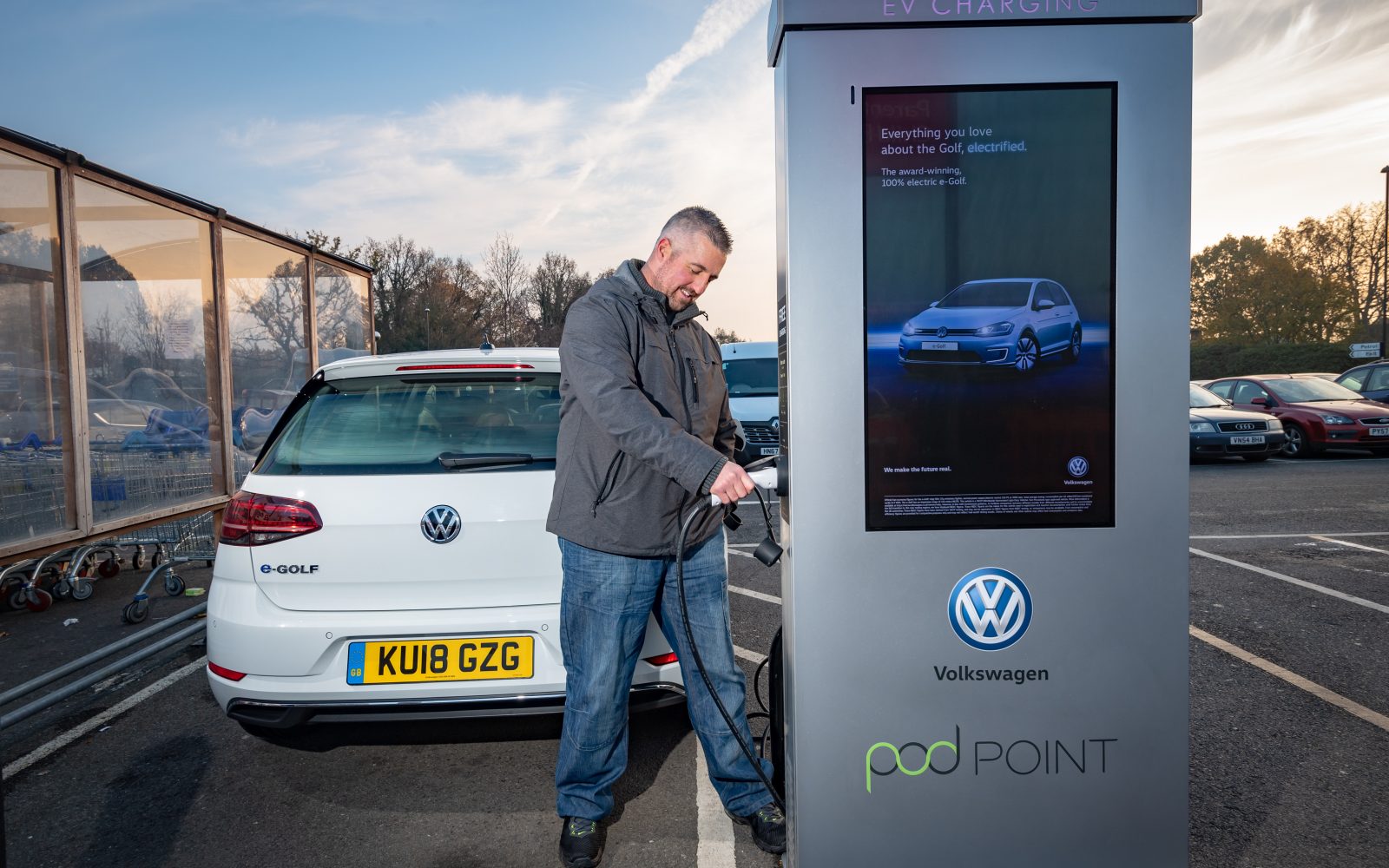The UK’s progress towards mass adoption of electric vehicles is well underway. But what are the long-term trends and the real and perceived factors influencing levels of adoption?
According to the UK’s Committee on Climate Change (CCC), the shift away from combustion engine vehicles to achieve zero emissions by 2050 requires 55% of all light-duty vehicles to be electric by 2032. This equates to more than 23 million vehicles in ten years.
Figures from Volkswagen Financial Services UK’s latest EV Tracker Report highlight that the figure is 150,000 ahead of the adoption curve required to meet the 2032 target.
«These figures are particularly impressive given the current supply chain issues, which are creating a shortage of new vehicles, but our research shows that the demand for electric cars is only heading in one direction,» says Volkswagen Financial Services UK managing director Mike Todd in a column in Automotive Management.
However, he comments: «Current challenges related to rising fuel, food and energy prices, as well as general economic confidence, may contribute to the planned purchase of electric vehicles becoming less of a priority.
Furthermore, Todd explains, this may be the case even for those who are aware of the economic and environmental benefits and are keen to take advantage of them.
Data from the most recent EV Tracker report shows that price has become a growing barrier to buy an electric vehicle.
The latest figures put this at 51% of respondents citing this as a limiting factor, up from 42% in the previous quarter.
Economic conditions remain challenging and many are likely to choose to delay an EV purchase.
Clearly, many people are willing to do more to go ‘greener’, but it is not unreasonable or unexpected that they will delay in order to focus on more pressing financial considerations, Todd comments.
«As a finance provider, it is imperative that we continue to develop propositions to help customers transition to electric cars and practical tools like our EV-4-Me. These are great ways to showcase the savings that can be made by embracing greener, more sustainable travel,» says the CEO.
Another marked issue is that there remain many misconceptions and knowledge gaps among consumers regarding the shift to electromobility.
For example, the analysis showed that almost a third of the population (32%) still do not know that from 2030 onwards they will not be able to order a new petrol or diesel car.
Meanwhile, around 65% of respondents believe that electric vehicles are likely to lose value as a result of a degraded battery.
Clearly, misperceptions about the quality, reliability and range of electric vehicles are something that all stakeholders must take swift action to address if the upward adoption curve is to progress.
A recent study by Volkswagen Financial Services UK found that the rising cost of petrol and diesel has led 31% of consumers to seriously consider an electric vehicle for the first time.
The same percentage of people also report that their dream car has switched from a petrol or diesel model to an electric drive since the pandemic.




















